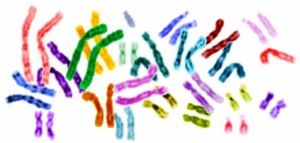News
CPH POST 2017 TOP 5: Top five Danish scientific discoveries
This article is more than 7 years old.

If you can look at worm faeces all day, you deserve all the success you can get (photo: Wikimedia/Webridge)
This year has been a bumper one for Danish researchers. Among other things, there have been breakthroughs in medicine and a number of major archaeological discoveries.
Work has been done on schizophrenia, the correlation between birth rate and intelligence – as well as nature conservation.
Compiling a top five is never easy, but here is ours – with apologies to any deserving cases omitted.
- Breaking down resistant bacteria defence
Researchers from the University of Copenhagen discovered a method through which antibiotics can be used to impact pathogenic bacteria otherwise naturally resistant to treatment. By inhibiting the energy centre of the bacteria they were able to make it more responsive to an antibiotic generally used to treat salmonella and E-coli infections.
- Sensational Viking grave found
In March, archaeologists uncovered several chamber-graves in Hørning near Skanderborg in Jutland. One of the chamber-graves contains the remains of a high-level person from the early Viking Age, as well as a number of spectacular items that confirm the individual’s high standing. He has been dubbed the ‘Fregerslev Viking’.
- Revolutionising snakebite treatment
Different snakes require different antivenom, and not getting it right can have lethal consequences. Students from DTU Biobuilders developed an apparatus that can ensure snakebite victims receive the correct antivenom. The apparatus analyses a blood sample to ascertain which snake administered the bite – something that could prove a boon to developing nations with a high frequency of snakebites.
- Urine test for prostate cancer
Every year, 4,500 Danish men are diagnosed as having prostate cancer. Researchers at Aarhus University have developed a new testing method in which a simple urine test can determine whether a man has prostate cancer or not. It is hoped the new test will mean fewer men in future having to undergo an unpleasant prostate biopsy.
- Danish Reference Genome
And the winner: researchers from three different universities – two in Denmark, one in China – analysed the genomes of 50 families. The fruits of their research produced a new body of knowledge called the Danish Reference Genome. The new reference genome can be used to enhance personalised medicine – for example, for mental disorders.






































